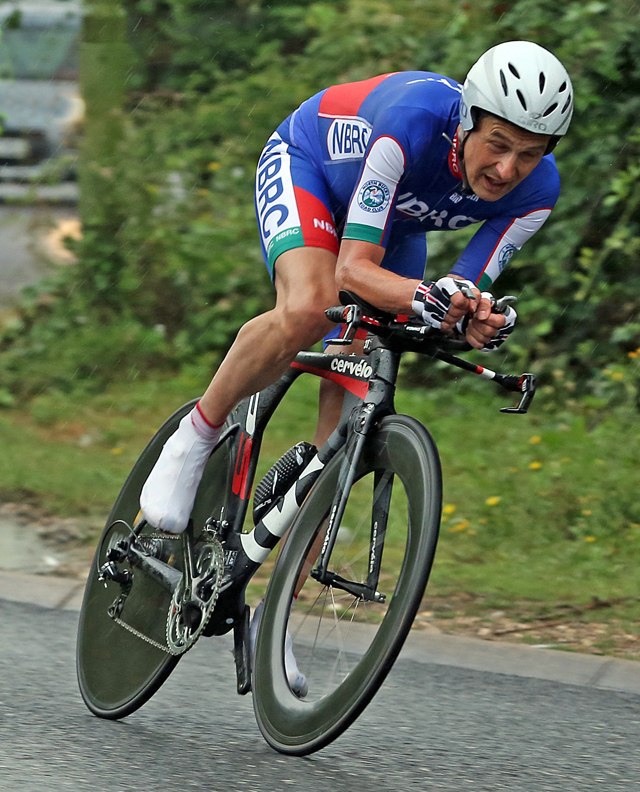To some, time trials are the “race of truth”. To others, a waste of time plugging along a road on your own! This is a brief introduction...
Time trialling in England is governed by Cycling Time Trials, the CTT, which was originally the Road Time Trial Council, or RTTC. Standard distances are 10 miles, 25 miles, 50 miles, 100 miles and the longer events, the 12hr and 24hr events (in which the aim is to cover as many miles as possible in the time given). Time trials are also held over other distances, most notably circuit events such as the Rudy Project time trial series, and hilly events (also known as Sporting Courses, or Spocos). In most events, the riders start at 1 minute intervals, and aim to cover the course in as short a time as possible, riding strictly on your own, without sheltering behind other riders or otherwise taking pace. The CTT have a useful beginners guide to Time Trials.
 Club Events
Club Events
Club events are relatively informal, and you can usually turn up on the night if you fancy a ride. They make an excellent introduction to the sport. You'll sign on, pay a small entry fee (currently £2.50 for NBRC members), and pin your number on: not very much time is spent sorting out the start sheet. At the start, you line up, then when your minute man has started, get ready to start. The timekeeper's assistant will hold you while you clip your feet to the pedals. After a brief countdown, off you go! Make sure you know the course beforehand – our club events aren't marshalled! You are expected to ride solo – if you are caught by a following rider, you must not take pace from him.
Our 2015 programme of club events can be found here.
Open Events
Open events are rather more formal. Details are found in the CTT handbook. You enter by completing and sending an entry from to the organiser, who's details are listed in the handbook, usually no later than 10 days before the event. (Entry forms are available for download at the CTT website, though increasingly event organisers use Internet Entry). Entry fees vary, usually they are around £5 to £10. These events can have as many as 120 riders, and the field is seeded such that the fastest rider starts last. Generally the fastest riders are starting every 10 minutes (a more detailed explanation of the seeding process is to be found in the handbook). These events are marshalled, and often take place on fast flat roads. The course are referred to by cryptic codes, a system dating from when these events were held in secrecy! A brief outline of each course is found in the handbook but is often not much more than an indication of where the course is. A full course description is included on the startsheet, which all competitors receive before the event, and which lists the starting order, prizes on offer, where the race HQ is and what facilities are available.
Time Trial Bikes
While you don't need anything special to start time trialling, you'll no doubt spot some of the aerodynamic “funny bikes” some of the faster riders will be riding. These will will feature some or all of the following: aerodynamic handlebars (aka “tri-bars”, and possibly the most significant improvement you can make to the bike); aero wheels (deep rim front, and disc rear), aero seat pins etc. If you're new to the sport, don't worry about all this kit, remember you're riding to improve your best performance, not necessarily to win the event!
Time Trials Abroad
While there are opportunities for road racing abroad, the relative lack of overseas popularity for time trialling means there is less opportunity. One exception is the Duo Normand, which is a monster 2-up team time trial event with upwards of 350 two-person teams held in Marigny in Normandy. The Duo Normand home page is here. Over the years several NBRC members have competed in the event. In most years since 2003, Robert Saunders has ridden the Duo Normand and can offer copious advice!
